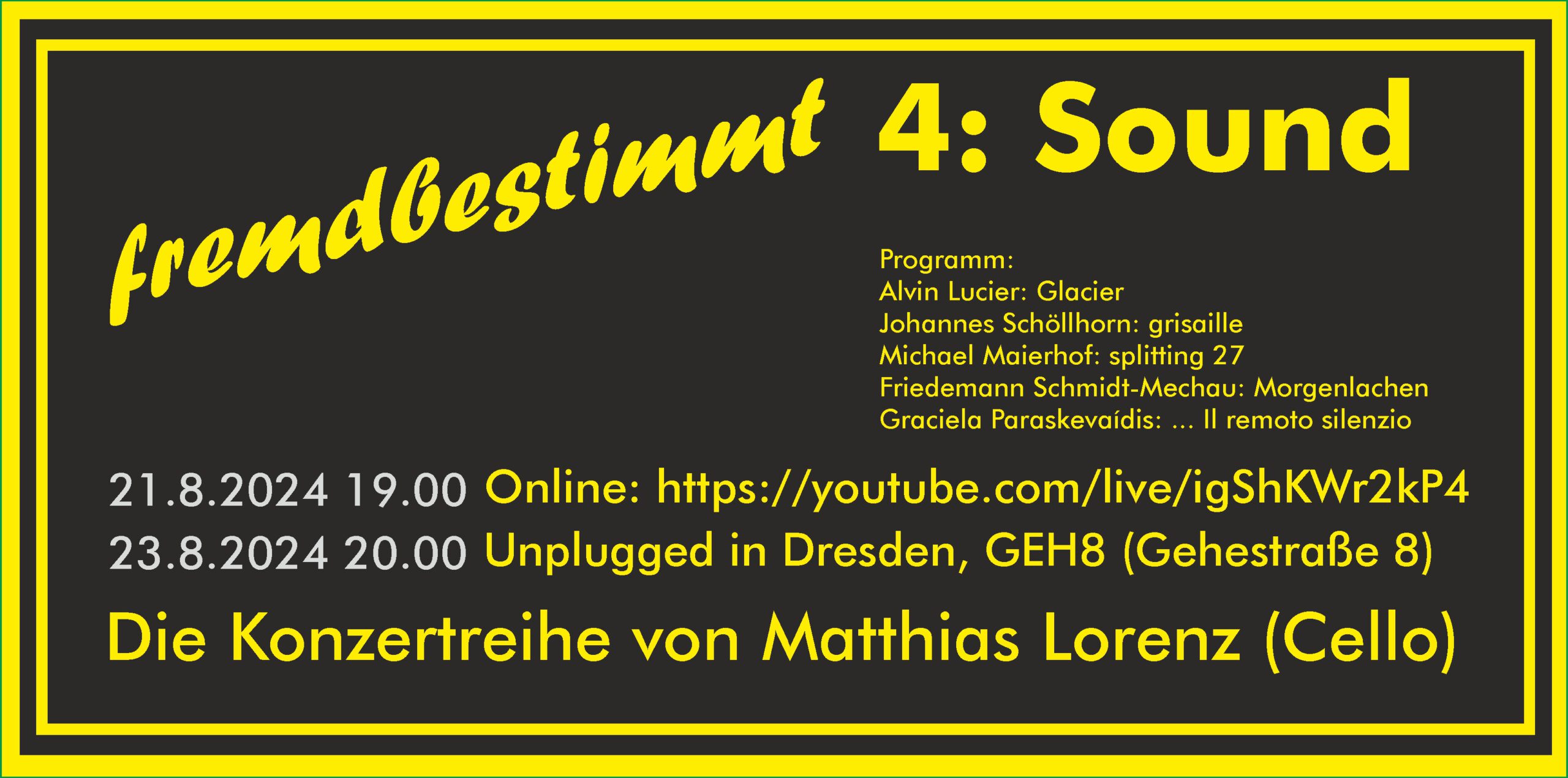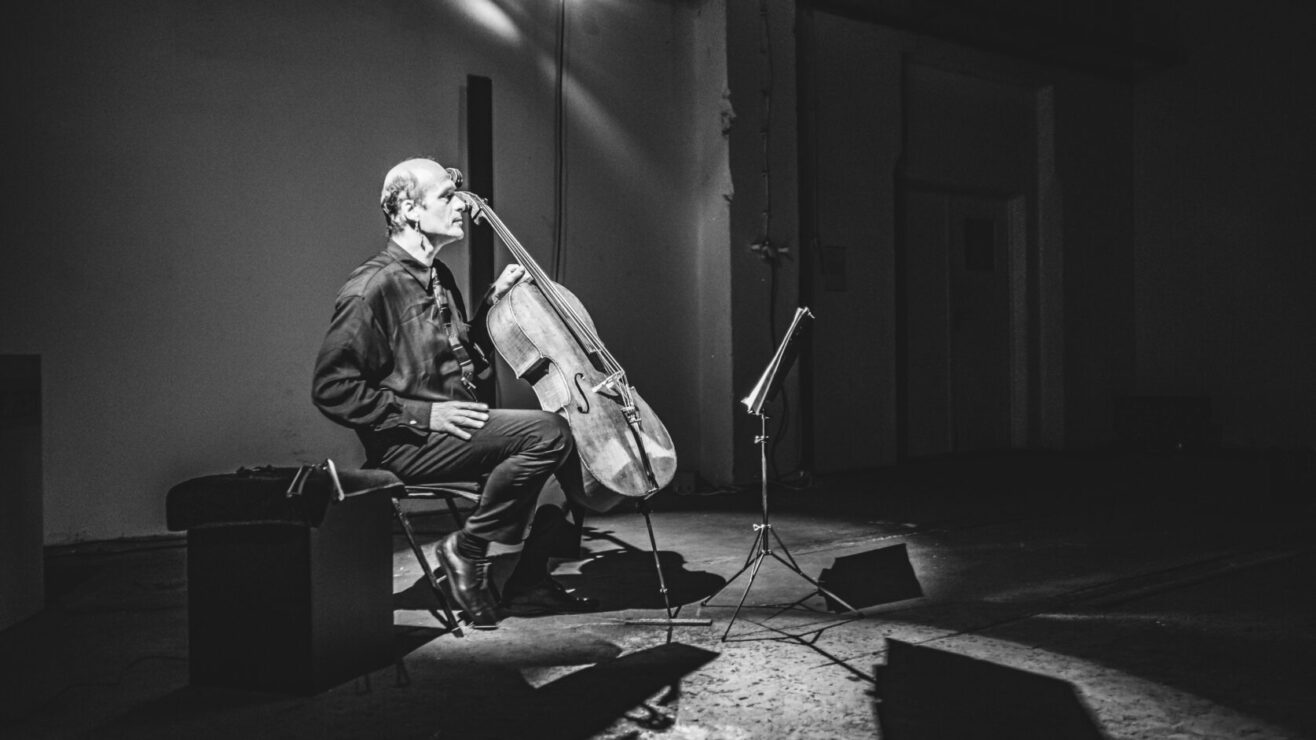Matthias Lorenz // Fremdbestimmt 4: Sound

Friedemann Schmidt-Mechau – Program compilation / Matthias Lorenz – Violoncello
We all have an idea of what a cello sounds like. Regardless of whether the cello is used in a “familiar” way or whether so-called new ways of playing play a role or whether it is used as a field of experimentation for previously unheard sounds: Perhaps precisely because I am a cellist, I am always seduced by the cello sound.
Where is the sound when composing or in the finished piece? Is it the surface, so to speak, that results from a deeper structure? Or is it the starting point that gives birth to a certain structure of the work? Are there differences between pieces that start from one or the other – can you even hear this in the finished piece? Can pure sound become a carrier of content? (Matthias Lorenz)
Program:
Alvin Lucier: Glacier (2009)
Johannes Schöllhorn: grisaille (2013)
Michael Maierhof: splitting 27 (2009)
Friedemann Schmidt-Mechau: Morgenlachen (1997)
Graciela Paraskevaídis: … Il remoto silenzio (2002)
Unlike language, which has found a use in writing that dispenses with the voice and its sound, the “sound” in music is elementary. With every musical learning and practicing, the sound of the instrument or voice is worked on, with every selection and combination of certain instruments or voices and pitches, with every use of an instrument or voice in a certain pitch and dynamic, decisions are made about the sound. The weight of the decision about the sound in relation to other aspects of a piece of music naturally varies from piece to piece and from composer to composer. In the rarest of cases, it is rarely possible to determine analytically in retrospect at what point in time and in what context the decision about the sonority of a piece was made during the compositional process.
At the latest with Luigi Russolo’s Intonarumori and Varèse’s Ionization, but even more so with the development of electronic sound generation, the field of musically usable sounds has expanded to include everything audible. Where “sound” serves not only as a distinguishing feature of a certain product – be it the specific tone of a pop group or a car brand with a door noise design – emphasizing a “sound” as the primary specific feature of music usually requires a reduction in other areas. “Sound culture”, “sound art”, “sound art” are terms that are intended to indicate such reductions, especially in the field of electronic music. But of course the transitions are fluid. (Friedemann Schmidt-Mechau)
When: Friday, August 23, 2024
Start: 8 pm
Where: GEH8
Admission: 12/8 €
Here you can find more information about Matthias Lorenz!
Here is the link for the online concert!
Here you can hear more information about the concertseries:
